History of University Librarians at the U of M
Learn more about the University Librarians at the University of Minnesota from 1869 to the present.
William Watts Folwell (Librarian 1869-1906)
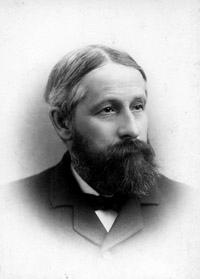
The University’s first president and librarian was born on February 14, 1833 in Romulus, New York. He received his education from Racine and Hobart Colleges. After serving in the Civil War and a brief career as a businessman and mathematics professor, he accepted the Presidency of the University of Minnesota in 1869. Shortly after his arrival, he assumed the title of University Librarian. Folwell’s plan for the library is outlined in his inaugural address delivered on December 22, 1869. He stated: "The University will accumulate and maintain a great library, to which citizens can resort for complete information on any useful subject. Next to instruction, the library is the great interest of the University." This vision of the Library as a statewide resource continues to guide the Library today.
Folwell adopted the Dewey Decimal Classification in 1895, the same year that Burton Hall was built to house the Library. In 1884, Folwell retired from the presidency at age 51, but continued to hold the title of Professor of Political Science and Librarian. In 1907, he again retired to devote himself to writing his four-volume History of Minnesota (Minnesota Historical Society, 1922), which is still a basic tool for research in Minnesota history. Folwell died in 1929 at the age of 96.
James Thayer Gerould (Librarian 1906-1920)
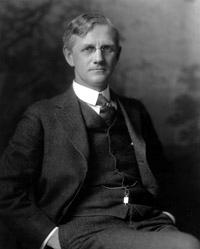
Gerould came to the University Library in 1906 after holding library positions in New York and Missouri. As the University’s first full-time librarian, Gerould brought a new energy to the Library and sought to meet the changing needs of research and instruction. Throughout the United States, faculty, scholars and students were pressing libraries for more books and easier access. Gerould increased the acquisition budget to $20,000, added specialized journals, and acquired library collections from Europe. During his administration, the collection grew from 50,000 to 400,000 volumes including Scandinavian holdings that formed the nucleus of today’s outstanding collection. In 1912, Gerould and reference librarian Ina Firkins launched the first University lecture series on the use of the library. At the end of Gerould’s administration in 1920, the Board of Regents approved construction of a new library building.
Gerould, a primary force in organizing the Association of Research Libraries in 1932, is best known in the library profession as the founder of the Association of Research Libraries statistics, a national compilation of library collection statistics. In 1920, Gerould became head of the Princeton Library. There he again faced the problems of building the collection and plans for a new library. After seventeen years, he retired to spend the rest of his life in Williamsburg, Virginia where he died in 1951.
Ina Ten Eyck Firkins (Acting Librarian 1920)
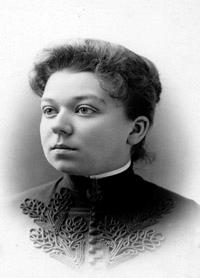
A lifelong resident of Minneapolis, Ina Firkins was born in 1866. After her graduation from the University of Minnesota, she realized that her only career option was narrowed to teaching, which had little appeal. When, in 1889, William Watts Folwell offered her a position in the library, she gladly accepted. Her training was brief. Folwell handed her a key to the library in Old Main and told her, "open up the library in the morning and remember that if any one has to get mad in the library let it be the person on the other side of the counter." Thus began a 42-year career as a reference librarian. Firkins was appointed Acting University Librarian in 1920 after the departure of James Gerould. It was she who supervised the construction of Walter Library that was one of most state-of-the-art libraries in the country. Benefiting from Folwell’s experience she avoided the shortcomings of Burton Hall.
One of the most scholarly librarians of her time, Firkins perceived that many of the reference tools in the library were inadequate. In 1914, she compiled Index to Short Stories, and in 1926, her Index to Plays appeared, both published by H.W. Wilson and continuing in revised editions as a major resource for libraries. After her retirement in 1932, she continued to update her indexes. After the death of her brother, Oscar Firkins, a poet and professor of English at the University, she organized his papers, which were published in 1934 by University Press as Memoirs and Letters of Oscar W. Firkins. She died on shipboard near Norway in 1937.
Frank Keller Walter (Librarian 1921-1943)
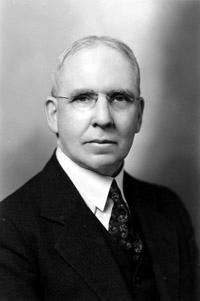
A native of Pennsylvania, Walter was born in 1874. After receiving a B.L.S. and an M.L.S. from the New York Library School, his first professional position was at the same institution from 1908 to 1919. He was appointed University of Minnesota Librarian in 1921. Upon his arrival, he participated in the planning of Walter Library, which was named for him in 1959. Walter taught library science and, with Ina Firkins’ assistance, organized a series of courses on library methods. In 1928, the Library School was established with Walter as its director. In 1937, he inaugurated a course for hospital librarians, one of the first in the country.
Walter’s philosophy is summed up in his statement, "in the modern scheme of education the university library is primarily a central service station of the entire university." He is remembered for his work in developing the University of Minnesota Library into one of the major research libraries in the country. During the Depression, Walter took advantage of the availability of WPA workers to catalog gifts and exchange books and journals. After World War II, he acquired several valuable European collections. The library rose in rank from twelfth to sixth among North American university libraries. The collection increased from 250,00 to more than 1,250,000 volumes.
On the national scene, Walter was an active member of library organizations and served as President of the Association of American Library Schools and the Association of College and University Libraries. He contributed to scholarship in the subjects of history of bibliography and libraries, library printing, terminology and collection development. His unpublished manuscript (housed in the University Archives), Ninety Years of the University of Minnesota Library, 1851-1941 is an invaluable source of information about the early history of the library and the University. Walter died in 1945.
Erret Weir McDiarmid (Librarian 1943-1951)
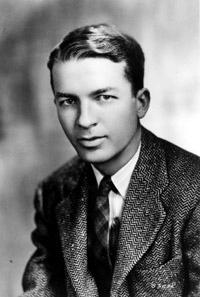
No University Librarian since Folwell served the University in so many roles. During his long tenure, he was Dean of the College of Science, Literature and the Arts and on the faculty of the Library School and Graduate School. McDiarmid was born in West Virginia in 1909. He earned his B.A. in Library Science from Emory University and a Ph.D. from the University of Chicago. His first professional position was at Baylor University. In 1937, he accepted a position in the Library School of the University of Illinois. In 1943, he was named University Librarian of the University of Minnesota.
McDiarmid wrote two classics of library literature — “The Library Survey: Problems and Methods” (1940) and “The Administration of the American Public Library” (1943), both published by the American Library Association. McDiarmid’s administration was colored by his conviction that a library should be a source of cultural and intellectual inspiration. He shepherded the library through the end of World War II during a time when the nation’s research libraries were moving toward building international collections. He established the Children’s Literature Research Collection in 1949 when Irvine Kerlan donated his collection to the Library. On the national scene, McDiarmid served as President of the American Library Association in 1948/49. In 1951, he left the Library to become Dean of School of Liberal Arts and from 1963 through 1978, he was Director of the Graduate School Fellowship Office. In 1947, he helped found the Norwegian Explorers, a group of faculty who were Sherlock Holmes fans. After his retirement, he continued as a volunteer in the Special Collections unit, working with the Holmes collections to which he donated over 15,000 items in 1995. McDiarmid died in 2000.
Edward Barrett Stanford (Librarian 1951-1971)
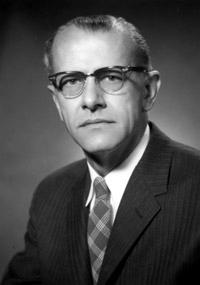
A man of intense energy, Stanford led the Library into a growing emphasis on building archival collections and also guided the Library in the early days of information science. A Minnesota native, Stanford received his library education from the University of Illinois and earned his Ph.D. from the University of Chicago. During World War II, he served as special representative of the U.S. Civil Service Commission and was stationed in England, where he was an army instructor. In 1946, he was appointed Assistant University Librarian. His responsibilities included personnel work and administration of the departmental libraries. He was appointed Acting University Librarian after McDiarmid’s resignation from the Library and, in 1952, was appointed University Librarian. During his tenure, professional librarians were given faculty status (1963).
Although construction of Wilson Library in 1968 is a highlight of Stanford’s career, his tireless work in establishing special collections may be the longest lasting legacy to scholarship. The Wangensteen History of Medicine Library opened in 1964. The Manuscript Collection, Social Welfare History Archives, and Immigration History Archives were established in the 1960s. The James Ford Bell Collection was founded under his direction in 1952. In 1963, the Library was designated as a regional documents depository for all U.S. Government publications. MINITEX was established (1972) to facilitate interlibrary loan within the state and, at the end of its first year, sixty-five regional libraries were connected via teletype.
In 1971, Stanford resigned to accept an appointment to the Library School faculty where he taught until 1977. During his retirement, Stanford contributed his energy and leadership to a number of community services and as a volunteer in the Children’s Literature Research Collections.
Ralph Harvey Hopp (Librarian 1971-1976)
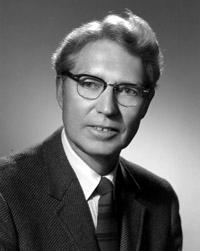
A native of Nebraska, Hopp is the first University Librarian to be educated as a scientist. Hopp earned a B.S. in engineering from the University of Nebraska. His M.S. and Ph.D. were received from the University of Illinois. His dissertation was on documentation in science and technology. He came to the University Libraries in 1953 as Assistant Director. Hopp and Stanford cooperated in library administration. Hopp had responsibility for personnel and day-to-day operations, and was deeply involved in planning Wilson Library. Hopp assumed the leadership of the library in 1971. During his administration, computers became an essential part of library research and the Minnesota Union List of Serials (MULS) was published in 1974.
After five years as University Librarian, Hopp decided to step down in 1976 to pursue other goals. For a time he served as a fundraiser for the library. In 1978, he accepted the position as Head of the Institute of Technology (College of Science and Engineering) Libraries. Hopp worked vigorously to address the space needs of the Institute of Technology Libraries. He retired from the Library in 1982. Because of his keen interest in physical fitness, Hopp published a book, Enjoying the Active Life After 50 (Stone Wall, 1979).
Raymond Bohling (Acting Librarian, 1976)
Bohling was a Nebraska native with an undergraduate degree in engineering. He received a M.A. in Library Science from the University of Denver in 1951. He returned to Nebraska where he managed medical and science/technology libraries in the University of Nebraska Library system. In 1960, he accepted the position of Supervisor of Departmental Libraries. In 1963, he became part of the library administration assuming the responsibilities of the day-to-day operation of the library. When Ralph Hopp stepped down, Bohling was appointed Acting Director of University Libraries.
After Eldred Smith was appointed University Librarian, Bohling became Head of the Engineering Library. He participated in moving the Institute of Technology (College of Science and Engineering) Libraries into Walter Library where he continued as a science bibliographer. He retired in 1996.
Eldred R. Smith (Librarian 1976-1987)
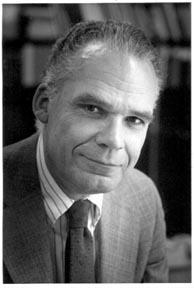
A graduate of the University of Southern California Library School, Eldred Smith left his position as Director of Libraries in the State University of New York, Buffalo to become University Librarian in 1976. Several challenges faced Smith in his new position. Book and journal prices were inflationary and the library was fully engaged in providing computer access to the collections. Smith was instrumental in adopting the Professional/Administrative staff class for newly appointed professional librarians.
During Smith’s administration, the Library of Congress classification system for books and the SuDocs classification system for government documents were adopted. In 1977, the Library began using the national OCLC system to catalog online, utilizing MARC format. In 1980, the Library became a member of the Research Libraries Group, a consortium of research libraries. The Library received several significant grants, including $1,250,000 from the Bush Foundation to convert over a million catalog records to a machine readable format. With this grant, the Library became the first major academic library in the U.S. to convert its card catalog to an online format. The Libraries became increasingly automated during Smith's tenure with LUMINA, the online public access catalog going live in 1987.
Smith served as President of the Association of College and Research Libraries 1977-78 and the Association of Research Libraries.
Smith resigned as University Librarian in 1987, but held a position with University Administration until his retirement. In 1990, Smith published The Librarian, the Scholar, and the Future of the Research Library (Greenwood Press).
John R. Howe, Jr. (Interim Librarian 1987-1989)
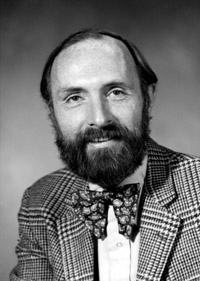
John Howe, a history professor and former Associate Dean of the College of Liberal Arts, was appointed as Interim University Librarian in 1987. Specializing in American history, Howe received his Ph.D. from Yale. Before coming to the University of Minnesota in 1965, he taught at Princeton and Dartmouth. Howe took a positive attitude toward the Library, feeling that good things were happening and that he could help lead the Library through the transition until the search for a new University Librarian could be completed. Howe had served in a number of administrative positions in the College of Liberal Arts and brought this experience to the Library.
During this interim period, the Library was awarded a $1.3 million grant from the National Endowment for the Humanities to microfilm scholarly resources threatened by disintegration due to age and poor quality paper. Howe returned to the History Department when Thomas Shaughnessy was appointed University Librarian in 1989. After retiring in 1999, Howe served as a Senior Program Officer for the National Endowment for the Humanities (1999/2000).
Thomas W. Shaughnessy (Librarian 1989-2001)
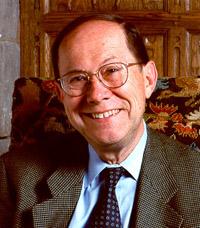
Thomas W. Shaughnessy came to the University of Minnesota Libraries in 1989 from the position as Director of Libraries at the University of Missouri-Columbia. He also held management positions at the University of Houston Libraries and Rutgers University. He received his M.L.S. from the University of Pittsburgh and his Ph.D. from Rutgers. In 1996, Shaughnessy was awarded the American Library Association Hugh Atkinson Memorial Award in recognition of his many contributions to librarianship. Shaughnessy has been a member of the boards of the Research Libraries Group, the Association of Research Libraries, and the Public Affairs Information Services, and was a member of the OCLC Board of Trustees. He is the author of numerous books and articles on library services and administration and a frequent speaker in the U.S. and abroad on these topics.
During Shaughnessy's administration, major accomplishments include: implementing the Virtual Electronic Library (a shared online catalog project within the Committee on Institutional Cooperation, now the Big Ten Academic Alliance); implementing and enhancing numerous technological innovations including electronic course reserves, Research Quick Start and Quick Study (online, interactive services to help undergraduates locate and use library resources), and InfoPoint (online reference service for distance education students); building the Elmer L. Andersen Library, which combines an above-ground facility housing eight special collections and archives with two below-grade caverns for storing lesser-used materials; overseeing the renovation of Walter Library and creating a state-of-the-art digital technology center for the campus and new Science and Engineering Library; and securing legislative funding for MnLINK, a shared, state-wide automated system implemented in 2002.
Peggy Johnson (Interim Librarian, 2002)
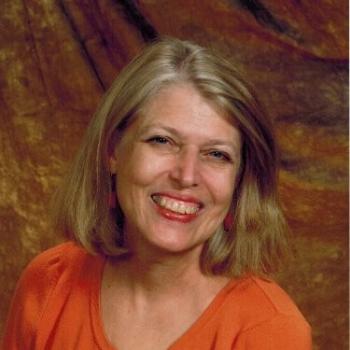
During more than 30 years at the University of Minnesota, Peggy Johnson's responsibilities focused on collection development and management, technical services, institutional planning, grants management, and budgeting. She served as Associate University Librarian from 2003 to 2011 and as Interim University Librarian from January to June 2002.
A past president of the Association for Library Collections and Technical Services (ALCTS), she received the ALCTS Ross Atkinson Lifetime Achievement Award in 2009. She has published several books, including ALA Editions’ Developing and Managing Electronic Collections: The Essentials, and numerous journal articles. She edited the peer-reviewed journal Library Resources & Technical Services for more than nine years and continues to edit Technicalities: Information Forum for the Technical Services Professional. She has taught as adjunct professor in the MLIS program at St. Catherine University since 2013. Her book, Fundamentals of Collection Development and Management, received the 2004 Blackwell's Scholarship Award for an outstanding monograph or article in the field of acquisitions, collection development, and related areas of resources development in libraries. Johnson has consulted on library development in Uganda, Rwanda, Senegal, Morocco, and China.
Johnson has an MLS from the University of Chicago and a Masters in Management from Metropolitan [Minnesota] State University. She began her career as a music cataloger, worked in the corporate sector, and has also been a children’s librarian.
Wendy Pradt Lougee (University Librarian, Dean of Libraries, and McKnight Presidential Professor, 2002-2020)
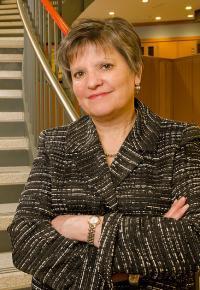
Wendy Pradt Lougee came to the University of Minnesota in 2002 from the University of Michigan, where she held a number of positions over a 20-year period, including Director of the Harlan Hatcher Graduate Library and Associate Director of the University Library for Digital Library Services. Her work in launching and developing a premier digital library program at Michigan was recognized with the American Library Association’s Hugh Atkinson Award (2003), Computerworld Honors Program Laureate (2002), and Michigan’s Walter H. Kaiser Award (2001). She held earlier appointments at Brown University and Wheaton College (Massachusetts). Lougee served on the board of directors for the Research Libraries Group, the Council on Library and Information Resources, the Digital Library Federation (President 2009), the National Information Standards Organization, the Association of Research Libraries (President 2012-2013), and the HathiTrust (Chair 2017). Her research and publications focus on digital library development, information economics, assessment of research behavior, virtual organizations, and e-research.
Throughout her career, Lougee has been at the forefront nationally — developing a number of programs, initiatives, and policies that have revolutionized academic librarianship, particularly in the area of innovation and technology During her tenure at the University of Minnesota, the Libraries was recognized in 2017 by the Institute for Museum and Library Services with the National Medal, the nation's highest honor for museums and libraries. In 2009, the Libraries received the 2009 Excellence in Academic Libraries award from the Association of College and Research Libraries, a division of the American Library Association. Lougee currently holds the title of Libraries Senior Fellow with the University of Minnesota Libraries.